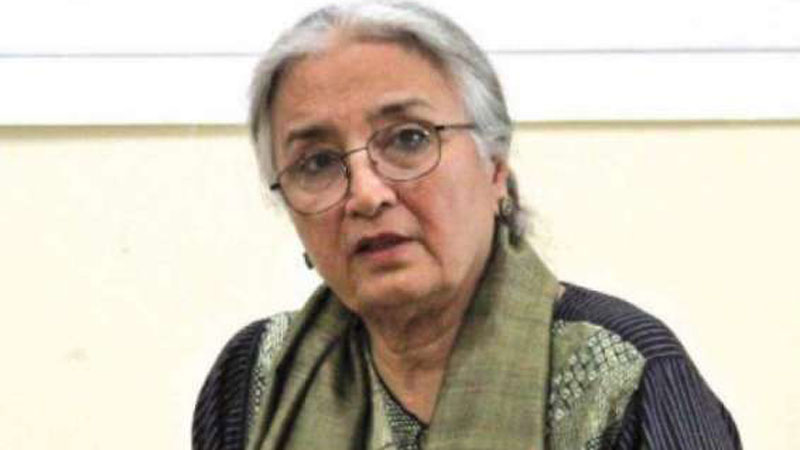IHC ‘restores’ Mumtaz as NCSW chairperson


She was removed from the post earlier by a single bench of the same court.
Through councils Asad Ladha and Malik Ghulam Shabbir, Mumtaz had challenged the decision of the single bench of the IHC comprising Justice Mian Gul Hassan Aurangzeb, in which the court had declared her appointment null and void.
In the intra-court appeal (ICA), Mumtaz’s councils contended in the court of Justice Athar Minallah that she has been removed over a petition in which the petitioner claimed that prime minister of Pakistan was not empowered to constitute the committee for assessing the candidates for the post of the chairpersonship at the time of the selection. They maintained that the NCSW Act, 2012, does not contemplate constitution of the committee for such an appointment, adding that the committee formed by the prime minster was an informal initiative. They claimed that the NCSW Act, 2012, was not violated in the process of her appointment and that the petitioner, Dr Farzana Bari, had misinterpreted Section 4 of the act.
“For the appointment of chairperson, the federal government will through a public notice invite suggestions for suitable persons for the post, after proper scrutiny, and shall submit a list of those persons to the prime minister and the leader of the opposition in the National Assembly,” according to the NCSW laws dealing with the appointment of the chairperson. “Prime minister shall in consultation with the leader of the opposition in the National Assembly forward three names for the chairperson to a parliamentary committee for hearing and confirmation. The parliamentary committee shall be constituted by the speaker of the National Assembly and shall comprise 50 percent members from the treasury benches and 50 percent from the opposition parties, based on their strength in parliament, to be nominated by the respective parliamentary leaders,” the law states.
“Finally, the parliamentary committee shall regulate its own procedure regarding the final selection of the nominee confirmed by the PM while the Ministry of Human Rights will issue the notification,” it concludes.
Mumtaz was appointed by a seven-member scrutiny committee headed by then law minister Zahid Hamid which supervised the procedure of the selection of the chairperson. She had been picked for the second time against the slot in 2016. Earlier, she had served for three years on the same post.
However, soon after Mumtaz’s appointment, Quaid-i-Azam University Gender Studies Department Director and women rights activist Dr Farzana Bari had challenged her appointment in the IHC and the court removed her from the post.
Dr Bari had claimed that the fundamental rights of the public at large had been violated by her reappointment as chairperson, adding that the authorities had ignored the criteria prescribed in the NCSW laws and also committed other procedural irregularities which, the petitioner added, adversely affected the rights of other suitable candidates for the post.
After hearing remarks of the councils, Justice Athar Minallah accepted the petition for further hearing and directed the appellant to continue to hold the office till the next date of hearing.
Published in Daily Times, June 8th 2018.
Leave a Comment